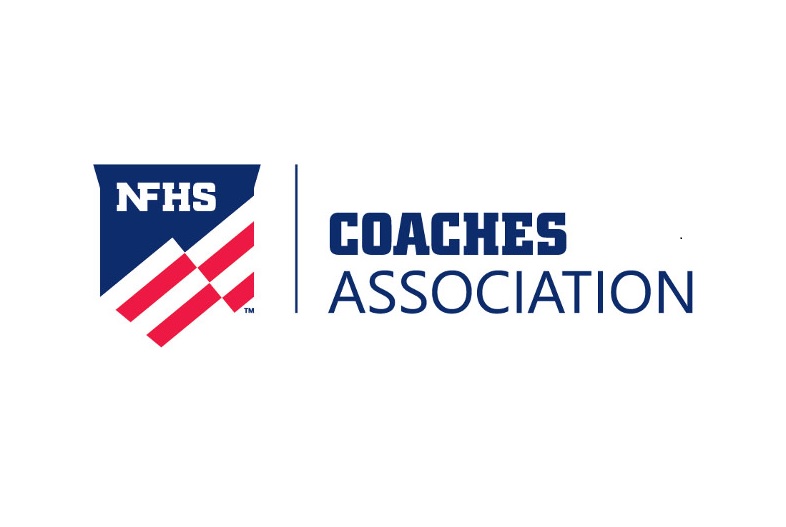
Teaching ABC's of Pressure Situations
October 30, 2013
 By Eric Martin
By Eric Martin
MSU Institute for the Study of Youth Sports
Coaches have seen the signs: Athletes having too much or not enough energy prior to a game, quickening breathing, sweating more than usual, being unable to focus on important details, and having their minds wander from the present to “what if” scenarios and past mistakes.
Athletes deal with pressure in many ways. Although some handle it well, many do not have the tools to perform to their full abilities in these situations. Most athletes place a high importance on succeeding in sport, and when athletes reach regional, district, or state championships, the pressure they feel may become overwhelming.
How athletes handle this increased pressure can often mean the difference between winning and losing. Therefore, helping athletes deal with it is something coaches should consider prior to athletes encountering these high-stakes situations.
Unfortunately, there is no magic elixir for helping your athletes work under pressure. But if these ABC’s of pressure situations are followed, your athletes will be much better equipped to cope, and the chances of their performance levels dropping significantly will be reduced.
1. Act the Part
How you as coaches act influences your athletes. For better or worse, athletes notice your emotions in response to these situations and take cues from how you handle pressure.
You are a demand on your players’ attention – you can add or reduce your players’ perceived stress by how you act. Understanding the demand you place on players requires self-awareness. How do you respond when a key call goes against you? Do you have nervous habits that athletes may notice? What messages are you providing to your athletes – both verbally and non-verbally? Athletes pick up on these non-verbal cues, so you must be aware of how you respond to these situations.
It is important to remember emotions are not always negative – rather acting differently than normal can be a signal to your athletes that you are stressed. Strive to be consistent in your actions – whether you are coaching during a preseason match or championship contest. These situations are stressful for you too, but you need to be the constant your athletes look to for stability.
2. Breathing – Remember to do it
It seems like a simple thing, but when athletes’ emotions are running high, they forget how to breathe – or, at least, forget how to breathe properly. Worse, they often think they are breathing normally but don’t notice breaths are becoming shorter and shallower. Teaching athletes to breathe properly when not in pressure situations will help them have the tools to rely on when they encounter more intense scenarios.
For proper breathing, athletes need to do so from the belly and not the chest. The pace of this breathing should be 6-2-7; that is, have athletes take a deep breath from the abdomen for six seconds, hold for two seconds, and then finally slowly exhale completely for seven seconds. This breathing strategy is ideal for pregame situations to quiet nerves and help athletes get ready to play, but a condensed version (3-2-3) can also be used for quick breaks in the action like a timeout or court change.
3. Control the controllables
During times of high pressure, athletes sometimes feel they do not have control over their own performances. It is important to help athletes focus on things they can control and not worry about those that cannot be changed or are outside their influence.
Instead of athletes dwelling on aspects that are out of their control like unusual game times for championship finals or a referee’s bad call, help them focus on completing their warm-up preparations and how they can respond to poor calls. Helping focus athletes’ attention on things they can control will help them better handle pressure situations and leave them feeling less helpless
Athletes’ emotions are typically out of their control, but how they view them and respond to these emotions are under their control. Author and preacher Charles R. Swindoll said, “Life is 10 percent what happens to you and 90 percent how you react to it!” Be sure your athletes know how to respond when difficult situations arise.
Conclusion: Fearlessness is an assembly
Not all athletes react to pressure situations in the same manner, but all athletes can benefit from these simple suggestions. Remember to ACT THE PART of how you want your athletes to act, teach your athletes proper BREATHING techniques, and help athletes focus on CONTROLLING THE CONTROLLABLES.
Good preparation is the key to performance. Increase self-monitoring and give athletes the tools to succeed in pressure situations; they, in turn, can be in a better position to succeed. However, like any skills, they must be practiced accordingly, and one session will not solve all issues. Devote the time to train athletes in these skills, and when the need arises they will have them ready to use.
Good luck this season!
Martin is a third-year doctoral student in the Institute for the Study of Youth Sports at Michigan State University. His research interests include athlete motivation and development of passion in youth, sport specialization, and coaches’ perspectives on working with the millennial athlete. He has led many sessions of the MHSAA Captains Leadership Clinic and consulted with junior high, high school, and collegiate athletes. If you have questions or comments, contact him at [email protected].

3 Michigan Leaders Earn NFHS National 'Coach of the Year' Honors
By
Geoff Kimmerly
MHSAA.com senior editor
January 18, 2022
Three Michigan high school varsity coaches have been recognized among 23 National Coaches of the Year for 2020-21 by the National Federation of State High School Associations (NHFS) Coaches Association.
Ann Arbor Pioneer girls swimming & diving coach Stefanie Kerska, Bronson volleyball coach Jean LaClair and DeWitt football coach Rob Zimmerman were selected by a committee including representatives from all eight NFHS sections – Michigan is part of Section 4 with Illinois, Indiana, Iowa and Wisconsin.
The following brief bios includes an excerpt from each honoree’s coaching philosophy, which nominees were asked to submit after being identified as candidates for the awards.
 Stefanie Kerska took over both the Ann Arbor Pioneer girls and boys swimming & diving programs during the 2014-15 school year, and she has led the girls to the last two Lower Peninsula Division 1 Finals championships; her 2020 team doubled up the runner-up’s score with 368 points, and this fall’s team climbed even higher with 405.5 points at the season-ending meet. She also led the girls team to a runner-up Finals finish in 2019 and the boys team to last season’s LPD1 Finals championship. Kerska previously served as an assistant coach at University of Michigan from 1997-2012 and on the USA Swimming national team staff from 2008-16. She remains active with USA Swimming, the FINA Swimming Development Team and as a presenter for the Summit for Empowering Women in Swim. She was named the Michigan Interscholastic Swim Coaches Association Coach of the Year for both Division 1 girls and boys during the 2020-21 school year.
Stefanie Kerska took over both the Ann Arbor Pioneer girls and boys swimming & diving programs during the 2014-15 school year, and she has led the girls to the last two Lower Peninsula Division 1 Finals championships; her 2020 team doubled up the runner-up’s score with 368 points, and this fall’s team climbed even higher with 405.5 points at the season-ending meet. She also led the girls team to a runner-up Finals finish in 2019 and the boys team to last season’s LPD1 Finals championship. Kerska previously served as an assistant coach at University of Michigan from 1997-2012 and on the USA Swimming national team staff from 2008-16. She remains active with USA Swimming, the FINA Swimming Development Team and as a presenter for the Summit for Empowering Women in Swim. She was named the Michigan Interscholastic Swim Coaches Association Coach of the Year for both Division 1 girls and boys during the 2020-21 school year.
“Athletics starts with a belief in belonging and making every team member feel safe and valued. Teammates should depend on coaches and each other for support, guidance and motivation to be the best they can be. Athletics should create an environment where effort, attitude and dependability are valued and required for success. It is often said that athletics builds character. I, however, believe it reveals it.”
 Jean LaClair ranks fourth in Michigan high school volleyball coaching history for varsity victories with a record of 1,289-398-99 having led Midland Dow from 1988-90, Pinconning from 1997-99 and Bronson beginning with the 2000-01 winter season. She’s coached Bronson to five MHSAA Finals championships – including four straight in Class C/Division 3 from 2015-18 – and her last two teams have reached the Division 3 Quarterfinals and Regional Semifinals, respectively. She is a longtime executive board member of the Michigan Interscholastic Volleyball Coaches Association and has served as president, and was a 2017 inductee to the Michigan High School Coaches Association’s Hall of Fame. She also serves as Bronson’s athletic director and has received both the MHSAA’s Women In Sports Leadership Award and Allen W. Bush Award.
Jean LaClair ranks fourth in Michigan high school volleyball coaching history for varsity victories with a record of 1,289-398-99 having led Midland Dow from 1988-90, Pinconning from 1997-99 and Bronson beginning with the 2000-01 winter season. She’s coached Bronson to five MHSAA Finals championships – including four straight in Class C/Division 3 from 2015-18 – and her last two teams have reached the Division 3 Quarterfinals and Regional Semifinals, respectively. She is a longtime executive board member of the Michigan Interscholastic Volleyball Coaches Association and has served as president, and was a 2017 inductee to the Michigan High School Coaches Association’s Hall of Fame. She also serves as Bronson’s athletic director and has received both the MHSAA’s Women In Sports Leadership Award and Allen W. Bush Award.
“High school athletics should be a lifelong, fun experience for our student-athletes where they learn what it takes to be a part of a team, what it means to work hard for the team. Those who play competitive spots in high school demonstrate more confidence, leadership and self-respect. They learn to set goals and manage their time! They have a better appreciation for diversity and a more developed sense of morality. These are all reasons why athletics are important, and I love working with our kids to make them better leaders for the community and world.”
 Rob Zimmerman led DeWitt to the last two Division 3 championship games and the Panthers’ first MHSAA Finals title to cap the 2020 season with a 12-0 record. He’s built a 241-67 record coaching DeWitt’s varsity since 1999 after previously coaching the varsity at Cedar Springs from 1996-98. He also has served as a head varsity track & field coach and middle school wrestling coach during his tenure in school sports, and he has served as both a regional director and on the executive board for the Michigan High School Football Coaches Association. His teams total have played in six MHSAA Finals, to go with 19 league, 14 District and 12 Regional titles during his 23 seasons at DeWitt. He has five times received statewide Coach of the Year recognition from The Associated Press, and in 2020 was named the state Dream Team Coach of the Year by both the Detroit Free Press and MHSFCA and state Coach of the Year by the MHSCA and Detroit Lions.
Rob Zimmerman led DeWitt to the last two Division 3 championship games and the Panthers’ first MHSAA Finals title to cap the 2020 season with a 12-0 record. He’s built a 241-67 record coaching DeWitt’s varsity since 1999 after previously coaching the varsity at Cedar Springs from 1996-98. He also has served as a head varsity track & field coach and middle school wrestling coach during his tenure in school sports, and he has served as both a regional director and on the executive board for the Michigan High School Football Coaches Association. His teams total have played in six MHSAA Finals, to go with 19 league, 14 District and 12 Regional titles during his 23 seasons at DeWitt. He has five times received statewide Coach of the Year recognition from The Associated Press, and in 2020 was named the state Dream Team Coach of the Year by both the Detroit Free Press and MHSFCA and state Coach of the Year by the MHSCA and Detroit Lions.
“In an ever-changing world that poses more social and emotional challenges for young people than ever before, systems that can provide a foundational support and teach high levels of collaboration, discipline, accountability and relationships are more important that ever. Athletics provides young people the opportunity to foster and cultivate these key traits that are crucial for their development. For future success, students need to be equipped to handle a variety of diverse situations and work with a variety of diverse people. This is sports at its core.”
Rockford wrestling coach Brian Richardson was honored in Section 4 after leading the Rams to the Division 1 Semifinals and a 20-4 record.
The NFHS has been recognizing coaches through an awards program since 1982.

